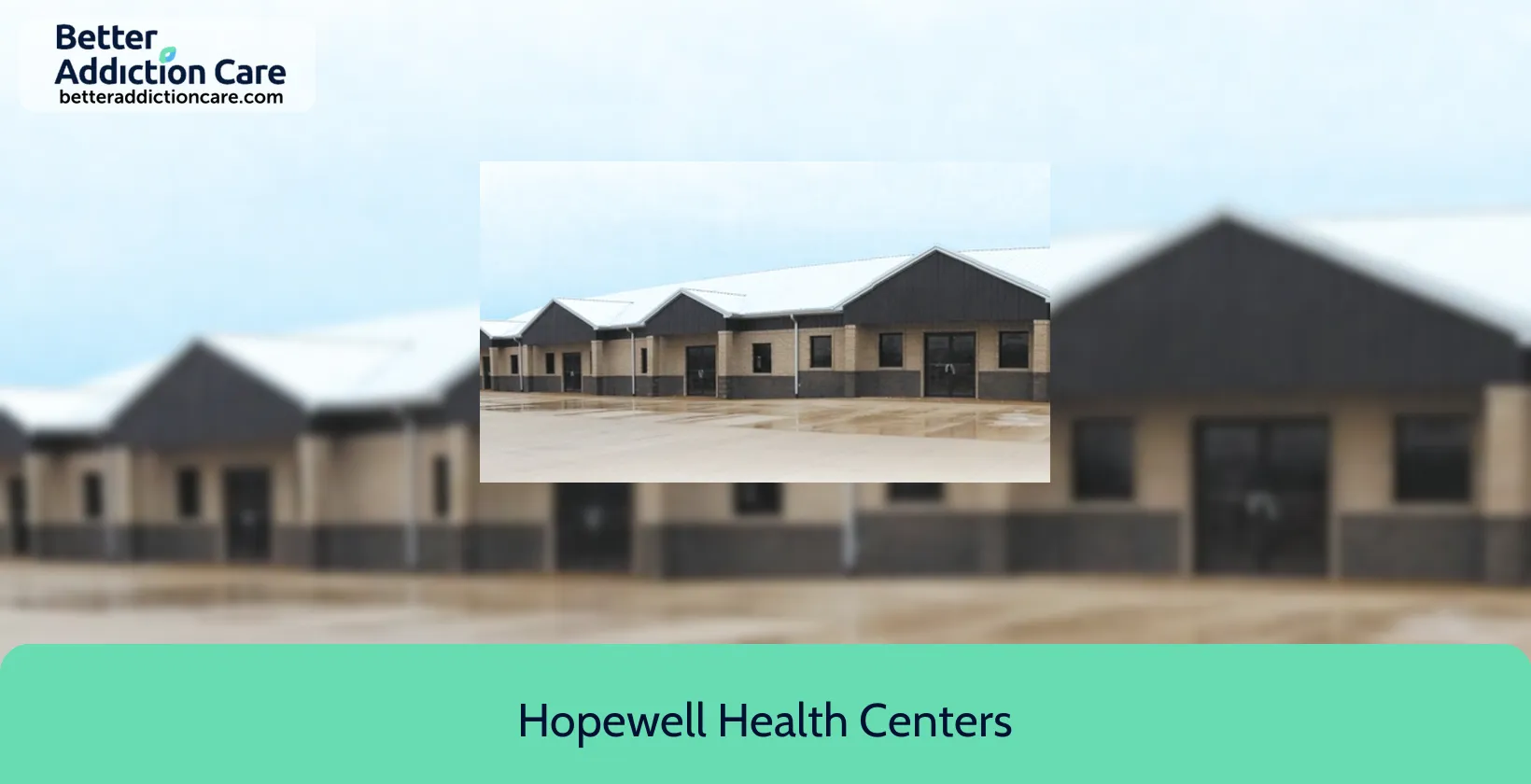Hopewell Health Centers
Overview
Hopewell Health Centers, situated in Jackson, Ohio, is a comprehensive healthcare provider. This facility is dedicated to the treatment of mental health and substance use disorders in individuals of all ages, including men, women, and children. They provide an integrated approach that integrates primary care with behavioral health services to address a diverse array of conditions.
Utilizing Vivitrol, an FDA-approved opioid addiction medication, Hopewell Health Centers offers intensive outpatient programs, medication-assisted treatment (MAT), and outpatient treatment for substance use. Additionally, they provide comprehensive community support services, such as psychiatric evaluations, case management, and crisis intervention. The center offers a variety of therapies, including Cognitive Behavioral Therapy (CBT), Dialectical Behavioral Therapy (DBT), and specialized trauma-informed care. These therapies include individual, group, and family therapy.
Hopewell Health Centers provides school-based programs and early childhood mental health consultations to children and adolescents, assisting them in overcoming behavioral challenges. The center is a valuable resource for holistic care due to the availability of specialized programs for families, veterans, and individuals with dual diagnoses. The center guarantees that the health requirements of Southeast Ohio residents are met through the provision of high-quality, integrated care, as evidenced by its accreditations from the Joint Commission, SAMHSA, and the Ohio Department of Mental Health and Addiction Services.
Hopewell Health Centers at a Glance
Payment Options
- Cash or self-payment
- Medicaid
- Medicare
- State-financed health insurance plan other than Medicaid
- Private health insurance
Assessments
- Screening for tobacco use
- Comprehensive mental health assessment
- Comprehensive substance use assessment
Age Groups
- Seniors or older adults
- Young adults
- Children/adolescents
- Adults
- Seniors
Ancillary Services
- Case management service
- Chronic disease/illness management
- Court-ordered outpatient treatment
- Family psychoeducation
- Illness management and recovery
Highlights About Hopewell Health Centers
6.91/10
With an overall rating of 6.91/10, this facility has following balanced range of services. Alcohol Rehabilitation: 8.00/10, Drug Rehab and Detox: 6.00/10, Insurance and Payments: 6.80/10, Treatment Options: 6.85/10.-
Alcohol Rehabilitation 8.00
-
Treatment Options 6.85
-
Insurance and Payments 6.80
-
Drug Rehab and Detox 6.00
Accreditations
Federally Qualified Health Center:
Federally Qualified Health Center (FQHC) accreditation is a process of evaluation and recognition by the federal government for community health centers that provide comprehensive and accessible healthcare services to underserved populations. FQHC accreditation is essential for centers to receive federal funding and to ensure that they meet standards for quality, patient-centered care.
The Joint Commission:

The Joint Commission accreditation for addiction and behavioral health is a prestigious recognition signifying a facility's commitment to delivering high-quality care and safety for individuals dealing with substance abuse and mental health issues. It involves rigorous evaluations and assessments, ensuring patients receive evidence-based treatment and exceptional care. This accreditation demonstrates a facility's dedication to continuous improvement and ethical practices, building trust among patients and healthcare professionals seeking top-tier addiction and behavioral health services.
SAMHSA:
SAMHSA's Opioid Treatment Programs (OTPs) accreditation is a rigorous recognition process that signifies an OTP's commitment to providing high-quality care for individuals dealing with opioid use disorders. It assures patients, families, and the community that the program adheres to evidence-based practices, employs qualified staff, and maintains a safe treatment environment. This accreditation is a symbol of quality and accountability, offering confidence in the program's ability to support individuals on their path to recovery from opioid addiction.
Treatment At Hopewell Health Centers
Treatment Conditions
- Alcoholism
- Mental health treatment
- Substance use treatment
- Co-occurring Disorders
Care Levels
- Luxury Treatment
- Detoxification
- Outpatient
- Regular outpatient treatment
- Partial Hospitalization Program
Treatment Modalities
- Couples/family therapy
- Group counseling
- Cognitive behavioral therapy
- Dialectical behavior therapy
- Integrated Mental and Substance Use Disorder treatment
Ancillary Services
Languages
- Sign language services for the deaf and hard of hearing
Additional Services
- Pharmacotherapies administered during treatment
- Aftercare Support
- HIV testing
Pharmacotherapies
- Benzodiazepines
- Buprenorphine (extended-release injectable)
- Buprenorphine with naloxone
- Cocaine
- Haloperidol
Special Programs
- Clients with co-occurring mental and substance use disorders
- Criminal justice (other than DUI/DWI)/Forensic clients
- Clients who have experienced trauma
- Children/adolescents with serious emotional disturbance (SED)
- Persons 18 and older with serious mental illness (SMI)
Contact Information
Read our Most Recent Article About Drug Addiction
DISCLAIMER: The facility name, logo and brand are the property and registered trademarks of Hopewell Health Centers, and are being used for identification and informational purposes only. Use of these names, logos and brands shall not imply endorsement. BetterAddictionCare.com is not affiliated with or sponsored by Hopewell Health Centers.









